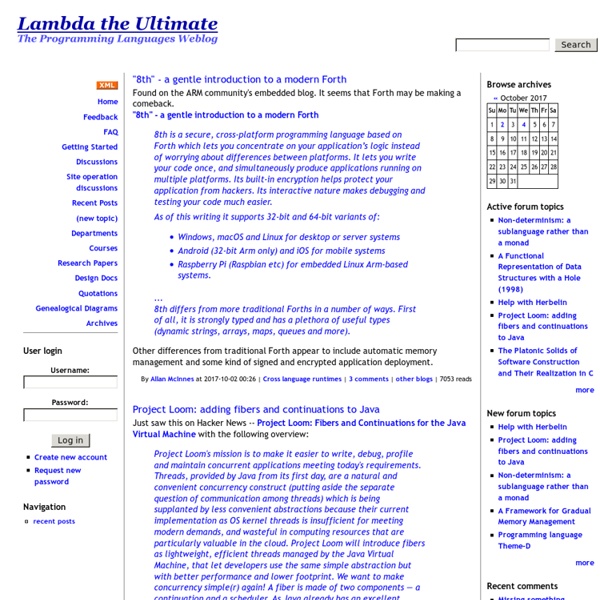



Introduction to Goose Game The first mention of the Game of the Goose comes from Francesco dei Medici, Grand Duke of Florence in Italy from 1574 to 1587. He sent a copy to King Philip II of Spain where it caused great excitement at the court, and the game spread rapidly to other parts of Europe. Professor Murray reports in his book: "A History of Board Games other than Chess" (Oxford University Press, 1952) that it reached England by 1597, when John Wolfe entered "the newe and most pleasant game of the Goose" in the Stationers' Register on June 16 (Arber, iii, 21). In 1758 the Duchess of Norfolk planted a Game of Goose in hornbeam at Worksop, as mentioned by Horace Walpole (Letters, 1840, iii, 395). Such hedge designs were at the time popular among the European gentry, although instead of the Goose game's spiral most were laid out as living Labyrinths, like the famous maze at Hampton Court. Continue Advertisement:
Encyclopedia of Philosophy Play board games online! • Board Game Arena Dear all, As you know, for two years and a half, we have been giving without counting to allow you to discover the best board games online. Our goal when we started this website was to create the best board gaming website online. Since two years and a half, we have had to battle with our families, our friends, our jobs and our social life overall to find the time needed for this adventure. Still, BGA seems now to have reached a respectable cruising speed that gives us to think that it is time to hand over the wheel to some other guys with more "managerial" profiles, and to go back to our families and our "normal" life. Fortunately, two old friends of ours have confirmed their interest to take back this website. The second, Charles Sharktooth, is also a long time acquaintance. Best of luck to the new team and long live BGA! EDIT: Allright, allright, this was April 1st.
TopITBooks - Top IT Books Free Download LyX’s detailed Math manual by the LyX Team Version 2.0.x This document explains LyX’s math features and is furthermore a collection of LaTeX-commands used for mathematical characters and constructs. Most of the characters and many constructs explained in this manual are also accessible via the menu Insert ▷ Math, or the math toolbar. If not specially mentioned the commands are only available within formulas. This document doesn’t list all AmS -math commands for lucidity reasons. To create an inline formula↓ that is embedded into a text line, use one of the shortcuts math-mode or the toolbar button To create a display style formula↓ that will appear bigger and in an own paragraph, use one of these shortcuts: math-display. To change a display style formula to an inline formula, set the cursor into the formula and use one of the shortcuts math-mode or the menu Edit ▷ Math ▷ Change formula type. To display parts of an inline formula in the size of a display style formula, enter the command \displaystyle↓ to a formula. .
Martin's axiom From Wikipedia, the free encyclopedia In the mathematical field of set theory, Martin's axiom, introduced by Donald A. Martin and Robert M. Solovay,[1] is a statement that is independent of the usual axioms of ZFC set theory. It is implied by the continuum hypothesis, but it is consistent with ZFC and the negation of the continuum hypothesis. Informally, it says that all cardinals less than the cardinality of the continuum, , behave roughly like Statement[edit] For any cardinal 𝛋, consider the following statement: MA(𝛋) Martin's axiom is then that MA(κ) holds "as long as possible": Martin's axiom (MA) For every 𝛋 < c, MA(𝛋) holds. Equivalent forms of MA(𝛋)[edit] The following statements are equivalent to MA(𝛋): Consequences[edit] Martin's axiom has a number of other interesting combinatorial, analytic and topological consequences: Further development[edit] Martin's axiom has generalizations called the proper forcing axiom and Martin's maximum.Sheldon W. References[edit] Further reading[edit]
LaTeX to Unicode This script attempts to convert LaTeX math-mode markup into a form that is more readable. It tries to use Unicode characters wherever possible. The code used to convert the LaTeX to Unicode characters is on Github. Please report any errors at the Issue tracker. Example: \itA \in \bbR^{nxn}, \; \bfv \in \bbR^n, \; \lambda_i \in \bbR: \; \itA\bfv = \lambda_i\bfv An extension for Google Chrome is available that allows you to use this tool without leaving the page you are on. I can be contacted at the email address: c@vikhyat.net .
Unified Modeling Language (UML) description, UML diagram examples, tutorials and reference for all types of UML diagrams - use case diagrams, class, package, component, composite structure diagrams, deployments, activities, interactions, profiles, etc.